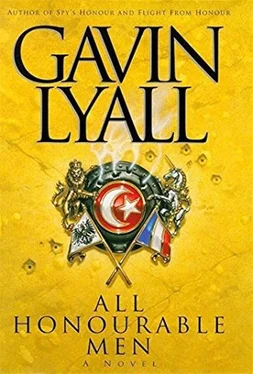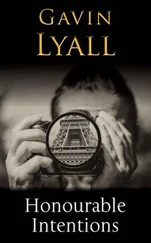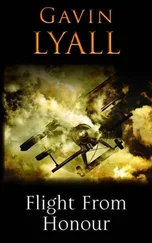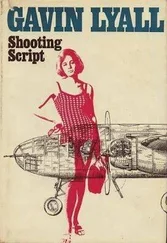Gavin Lyall - All Honourable Men
Здесь есть возможность читать онлайн «Gavin Lyall - All Honourable Men» весь текст электронной книги совершенно бесплатно (целиком полную версию без сокращений). В некоторых случаях можно слушать аудио, скачать через торрент в формате fb2 и присутствует краткое содержание. Год выпуска: 1997, Издательство: Bloomsbury Publishing, Жанр: Шпионский детектив, Исторический детектив, на английском языке. Описание произведения, (предисловие) а так же отзывы посетителей доступны на портале библиотеки ЛибКат.
- Название:All Honourable Men
- Автор:
- Издательство:Bloomsbury Publishing
- Жанр:
- Год:1997
- ISBN:нет данных
- Рейтинг книги:5 / 5. Голосов: 1
-
Избранное:Добавить в избранное
- Отзывы:
-
Ваша оценка:
- 100
- 1
- 2
- 3
- 4
- 5
All Honourable Men: краткое содержание, описание и аннотация
Предлагаем к чтению аннотацию, описание, краткое содержание или предисловие (зависит от того, что написал сам автор книги «All Honourable Men»). Если вы не нашли необходимую информацию о книге — напишите в комментариях, мы постараемся отыскать её.
All Honourable Men — читать онлайн бесплатно полную книгу (весь текст) целиком
Ниже представлен текст книги, разбитый по страницам. Система сохранения места последней прочитанной страницы, позволяет с удобством читать онлайн бесплатно книгу «All Honourable Men», без необходимости каждый раз заново искать на чём Вы остановились. Поставьте закладку, и сможете в любой момент перейти на страницу, на которой закончили чтение.
Интервал:
Закладка:
3
The Commander had got one thing wrong: “Mrs Finn”, nee Corinna Sherring, was not a widow. The San Francisco fire of 1906 (which did not involve an earthquake, as any resident without earthquake insurance could tell you) destroyed so many public records of births and marriages that it became, retrospectively, where most of America’s confidence tricksters had been born or married. But what (a kindly judge asked himself) could a millionaire’s daughter gain from falsely declaring she had lost both husband and his birth certificate in the flames when no inheritance was involved? The judge’s wife might have pointed out that society – particularly in Europe – allowed widows far more licence than unmarried girls, but more likely she’d have kept such knowledge to herself. Anyway, the judge hadn’t asked her.
Corinna had not, in the eyes of society, abused her freedom. She did not steal others’ husbands, however obvious the offers from the husbands (and occasionally their wives). She had simply set out to enjoy the full life she had heard whispered about at her Swiss finishing school. And if anybody said she could only do that because her father was very rich, she readily agreed and pointed out that, since he was rich, she’d be silly to pass up the chance.
Her interest in making as well as spending money was a different matter. For as long as she could remember she’d been intrigued by what her father actually did , and when her brother Andrew showed no interest at all, he nurtured her curiosity into a fascination with the world where money was not pennies and dollars in your purse but something as invisible as the breeze, as powerful as the typhoon – and as vital as the trade winds.
Meanwhile, her mother, long deserted by her husband and now apparently by her daughter as well, took to drinking even more heavily. It was, Corinna now realised, terribly unfair that the effect was so obvious when she didn’t understand the cause. And when she understood that the cause was her father, she had to cope with hating him for that whilst loving and admiring him for the rest. She found she could manage that. But it left her very, very wary of marriage.
Perhaps she felt safe with Ranklin just because they had no future together. And she could be honest with him – even about the late, fictitious Mr Finn – because they had swapped hostages and she knew, and kept, his own more dangerous secret. With him, she didn’t have to face the forever.
She had summoned Ranklin to meet her at the end of a grey March afternoon in an upstairs room of a Bond Street gallery, one of those places dealing in beaux arts which could be anything from probably Venetian crystal to an attributed Gainsborough via a restored Hepplewhite commode. She was talking to one of the staff “experts” (salesmen), who had manoeuvred her near to a comfortable chair and obviously wanted her to sit down and give him a turn at dominating. He had Ranklin’s sympathy.
Corinna – several inches taller than Ranklin – had literally a head start when it came to dominating, and her clothes did the rest. She bought mainly from someone called Poiret in Paris, so while the rest of Bond Street tottered along in pastel hobble skirts and small feathery headgear she wore a loose kimono-like coat of purple-red and a black matador’s hat.
Most women would have become invisible inside such clothes; Corinna got away with it because of her vivid and rather actressy exaggeration of eyes, mouth and black hair. She saw Ranklin and blazed a wide grin at him. Standing too close, the “expert” recoiled from the muzzle blast.
“Hello there. You know Constantinople, don’t you?”
“I’ve been there.”
“What d’you think of this, then?”
“This” was an oil painting placed on a display easel to catch what little light came from the window over the street. Ranklin couldn’t see if it were signed by an artist he should admire, but with its minarets and Byzantine domes and small boats it was unmistakeably Constantinople.
“It is,” he pronounced, “unmistakeably Constantinople. At sunset,” he added.
“Ignorant yahoo,” Corinna said. “That could be by Van-mour, painter to the French Embassy in Constantinople in the eighteenth century. You didn’t even know embassies had artists in those days, did you?” She spoke with the confidence of very new-found knowledge.
The “expert” said hastily: “I’ll leave you to discuss it then, madam, sir.” He bowed slightly and vanished downstairs.
“I know nothing about art,” Ranklin said, “but they sell those by the yard in the souvenir shops of the European quarter. Why the interest?”
“I’ve got to go there.”
Ranklin looked at the picture again. “Well, if you add the smell of someone brewing coffee with sewer water and the sound of a street fight in Greek and French, staring at it might help. Got to? – why?”
She finally sat down. Untypically, she made quite a procedure of it, propping up her dainty umbrella and carefully placing a large piece of hand baggage that she insisted was just a “purse”. “Oh, business, more or less.”
She was keeping something back, but Ranklin knew enough just to nod. Perhaps she realised the impression she’d given, so started to drown it in explanation. “The Turks are looking for a big long-term loan – again. Their Finance Minister’s been running around Europe all winter trying to raise one. The City here won’t touch the idea, the Germans aren’t lending money to anyone at the moment, so the French are his best bet, they’ve lent so much in the past they’re riding a tiger. And their people are out there talking right now.
“We’ve got a new Ambassador in Constantinople, Henry Morgenthau. A Democrat.” She considered, then perhaps remembered the poor man might have been born that way, and went on: “He used to be a Wall Street lawyer. And the Turks apparently asked him Could America help out? It seems the answer was mostly No, but there’s one guy, Cornelius Billings from Chicago, who’s been a pretty good client of ours over the years, and he got interested and went out there in his yacht-”
“In this weather?” The Eastern Mediterranean wasn’t the Bay of Biscay, but Ranklin had imagined American millionaires as strictly summer sailors.
She got a little austere. “It isn’t a bath-tub toy. It’s over a thousand gross tons, three turbines and does sixteen-” She caught his expression of polite uninterest. “Anyhow, it’s bigger than ours. So: he went to Constantinople, he listened to them, and cabled Pop saying he was getting interested. Pop’s pretty wary of the Turkish market but doesn’t like to say No to an old client, so he’s sending me, so I can take the blame if Billings starts saying we’ve let him down. It won’t be the first time.” She sounded philosophical about it, then added: “And Billings may be right and there’s some good business to be picked up there. The Turks certainly need the money. According to Billings, the Balkan wars literally ran them out of cash so the Government can’t pay its wage bill. I mean, think of that: you do a week’s work but don’t get paid at the end of it.”
Scandalised by the thought, she stood up and strode to frown out of the window. Ranklin was less moved. He didn’t pretend to know Turkey, but he had met Eastern fatalism. And there, if you hadn’t been paid, well, “It is written.” Anyway, most of your income wouldn’t be from your salary but bribes – baksheesh . And what could you do about it? Certainly not take a stand on principle. Sometimes he thought that her world, with its vastly complex deals measured in eighths of one per cent, only worked because of its simplicity: you kept your word or you were an outcast, and probably a bankrupt. He knew about that side of it.
Читать дальшеИнтервал:
Закладка:
Похожие книги на «All Honourable Men»
Представляем Вашему вниманию похожие книги на «All Honourable Men» списком для выбора. Мы отобрали схожую по названию и смыслу литературу в надежде предоставить читателям больше вариантов отыскать новые, интересные, ещё непрочитанные произведения.
Обсуждение, отзывы о книге «All Honourable Men» и просто собственные мнения читателей. Оставьте ваши комментарии, напишите, что Вы думаете о произведении, его смысле или главных героях. Укажите что конкретно понравилось, а что нет, и почему Вы так считаете.











